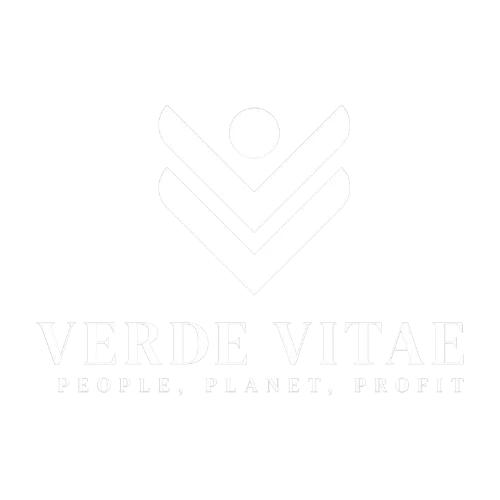Insights
Educate | Inspire | Motivate

Failing Forward: How Embracing Failure Leads to True Success
The Paradox of Success
Success is often defined by achievements, milestones, and flawless execution. But what if the real secret to success isn’t avoiding failure, but embracing it?
The truth is, failure is not the opposite of success; it’s an essential part of it. Every major breakthrough, innovation, and personal growth story is built on a foundation of setbacks, mistakes, and lessons learned.
In this blog, we’ll explore:
✔ Why failure is necessary for success
✔ The difference between failing forward vs. failing backward
✔ How to turn mistakes into stepping stones
✔ Strategies to overcome the fear of failure
Whether you’re a leader, entrepreneur, or employee, understanding how to fail forward can transform your career, wellbeing, and personal growth.
Why Failure is the Hidden Key to Success
1. Failure Provides Valuable Feedback
Imagine if Thomas Edison had given up after his first failed attempt at the lightbulb. Instead, he famously said: “I have not failed. I’ve just found 10,000 ways that won’t work.”
Failure isn’t a dead end, it’s data. Every mistake teaches us what doesn’t work, so we can refine our approach and succeed faster.
2. Builds Resilience & Mental Toughness
Corporate life is full of challenges, missed targets, rejected proposals, or unexpected setbacks. Those who fail forward develop resilience, bouncing back stronger each time.
Research shows: People who embrace failure recover faster, adapt better, and perform at higher levels (Harvard Business Review).
3. Encourages Innovation & Creativity
If you’re not failing occasionally, you’re not pushing boundaries. Companies like Google, Amazon, and Apple encourage experimentation, knowing that some ideas will flop, but others will revolutionise industries.
Failing Forward vs. Failing Backward: What’s the Difference?
Failing Forward - Sees failure as feedback. Adapts & improves. Takes calculated risks. Growth mindset
Failing Backward - Sees failure as final. Gives up or blames others. Avoids risks altogether. Fixed mindset
Example in the Workplace:
Failing Forward: A sales team misses their target but analyses why, adjusts their strategy, and exceeds goals next quarter.
Failing Backward: The same team blames market conditions, gives up, and repeats the same mistakes.
Which approach leads to long-term success?
How to Fail Forward: 5 Practical Strategies
1. Reframe Failure as Learning
Instead of thinking I failed, ask:
What did I learn?
How can I improve next time?
2. Adopt a Growth Mindset
Carol Dweck’s research shows that people with a growth mindset (believing skills can be developed) outperform those with a fixed mindset (believing talent is innate).
Tip: Replace “I’m not good at this” with “I’m not good at this… yet.”
3. Take Smart Risks
Avoid reckless decisions, but don’t shy away from calculated risks. The biggest rewards often come from stepping outside comfort zones.
4. Practice Self-Compassion
Beating yourself up over failure only hinders progress. Treat yourself with the same kindness you’d offer a colleague.
5. Seek Feedback & Iterate
Great leaders don’t just learn from their mistakes, they actively seek feedback to improve.
Overcoming the Fear of Failure
Fear of failure holds many professionals back. Here’s how to break free:
✔ Visualise Success & Failure – What’s the worst that could happen? Often, it’s not as bad as we imagine.
✔ Start Small – Build confidence with low-risk experiments before tackling bigger challenges.
✔ Surround Yourself with Support – A strong network provides encouragement and perspective.
“Success is stumbling from failure to failure with no loss of enthusiasm.” – Winston Churchill
Fail Fast, Learn Faster
True success isn’t about avoiding failure, it’s about failing forward. Every mistake is a lesson, every setback a setup for a comeback.
Your Action Steps:
Reflect – What’s one recent failure that taught you something valuable?
Reframe – Next time you face a setback, ask: “What can I learn from this?”
Take a Smart Risk – Step outside your comfort zone this week.
By embracing failure as part of the journey, you’ll build resilience, creativity, and ultimately, greater success.
Learn more about EQ workshops, coaching, and tailored leadership programmes with Verde Vitae.
If you liked this quick notes article you might like this one too:
Top 5 Corporate Wellness Trends in the UK for 2025
Authentic Leadership: How to Lead with Confidence and Stay True to Yourself
What Our Customers Say
James Holmes

Partnering with Verde Vitae has been a game-changer for our organisation. Their holistic approach to wellness has not only improved our team's overall health but also boosted productivity and creativity. The mindfulness and stress management programmes have been particularly transformative, leading to a more harmonious and efficient workplace. We're seeing tangible results in employee satisfaction and performance.
James Blackwood

Verde Vitae transformed our approach to sustainable business practices whilst maintaining our bottom line. Their strategic guidance helped us implement eco-friendly initiatives that not only reduced our carbon footprint but also resonated strongly with our customers.
Within six months, we saw a 30% reduction in operational costs and a significant boost in brand reputation.
Sarah Mitchell

The Emotional Intelligence Workshop was nothing short of transformative for our leadership team. In just one day we gained practical tools for understanding and managing workplace dynamics that we've used every day since.
They balanced theory with hands-on exercises, making complex concepts remarkably accessible. Most importantly, we've seen tangible improvements in team communication, conflict resolution, and overall workplace morale.

Cultivating a High-Performing Workplace Culture
Maximise Profits through Employee Wellness Investments
© 2024 Verde Vitae - All Rights Reserved,
Website built and developed by Mexital Consulting
